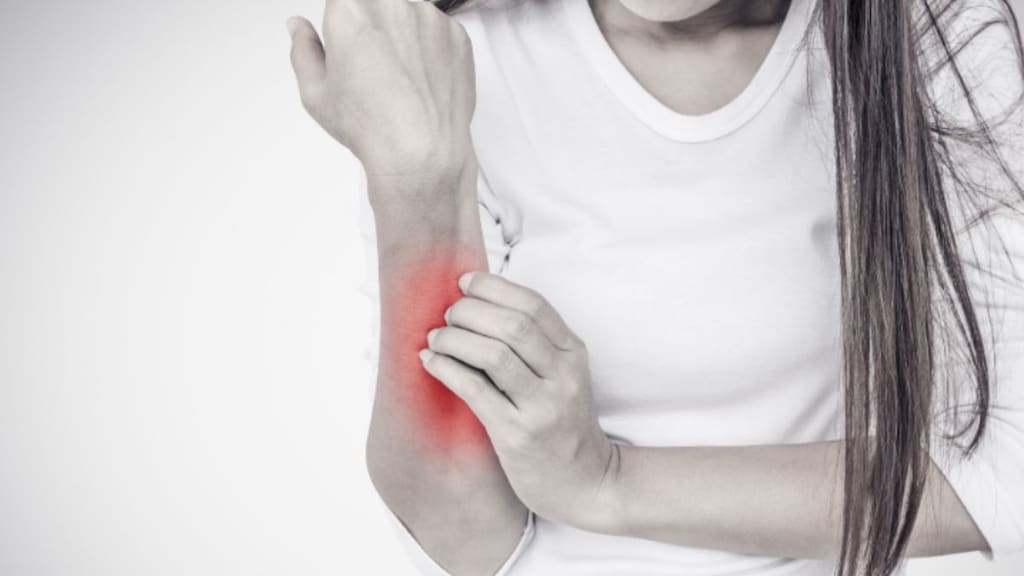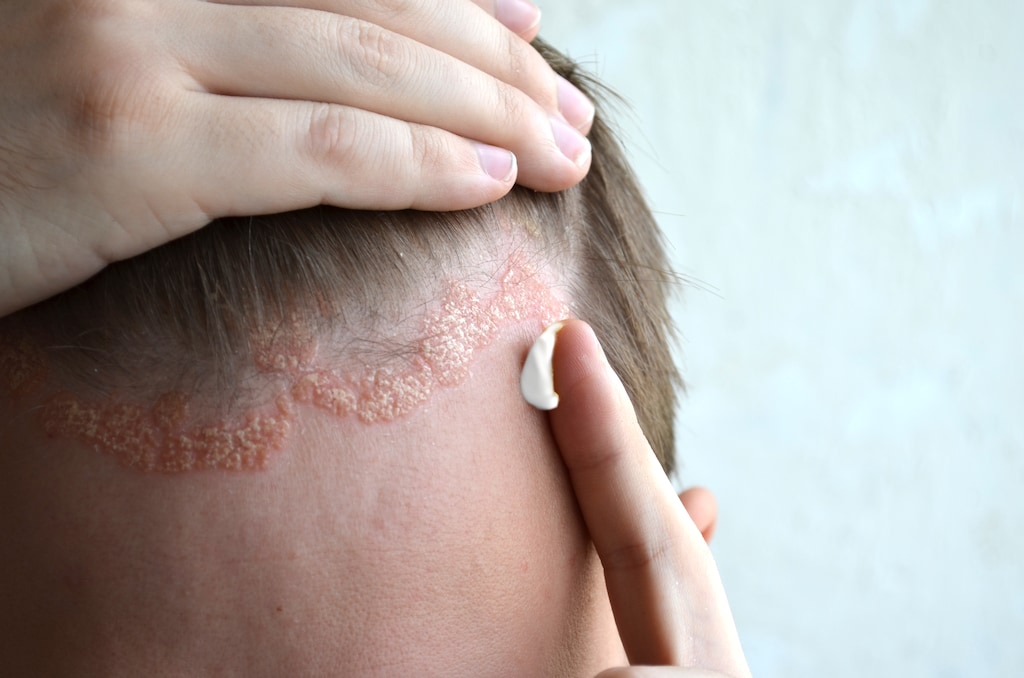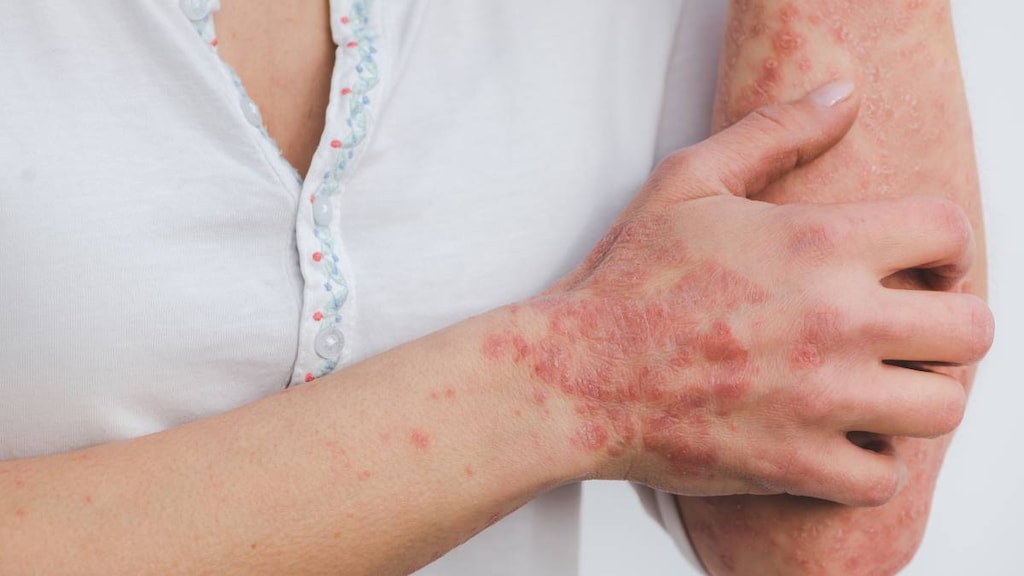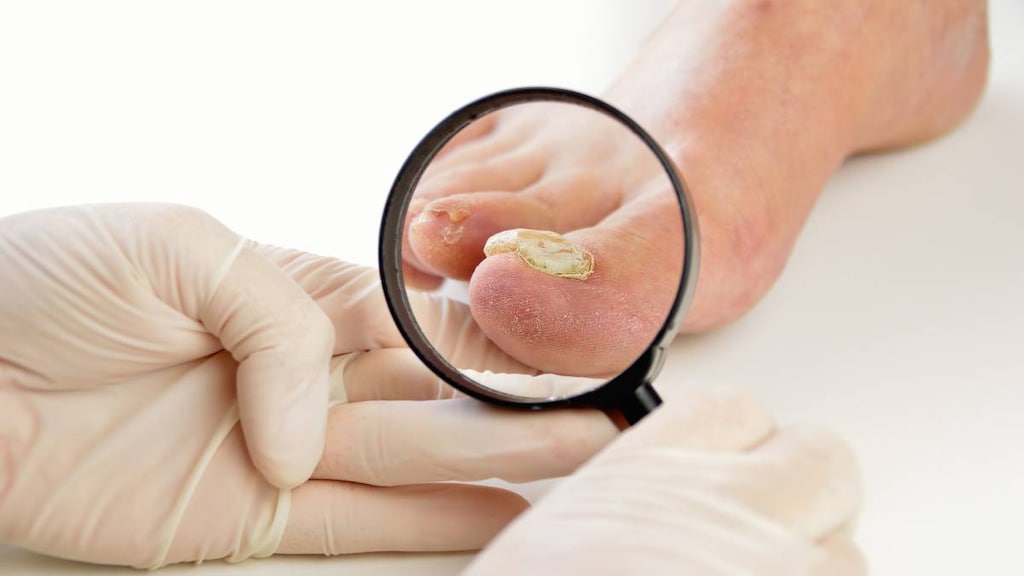
What is psoriasis?
Psoriasis is a common skin condition characterized by red, scaly, itchy and thickened areas of skin. There are several different types of psoriasis, and it can affect the skin, nails, and scalp.
Although it can start at any age, most people develop psoriasis between the ages of 15 to 25 years or 50 to 60 years.
What causes psoriasis?
Disruptions in the immune system are thought to lead to psoriasis. Genetic factors also play a role, and certain types of psoriasis, such as early-onset psoriasis and guttate psoriasis are associated with changes in the histocompatibility complex, HLA-C*06:02.
These changes lead to an acceleration in the life cycle of skin cells, which causes them to build up rapidly on the skin’s surface, forming scales and patches.
Certain factors have been identified that increase the risk of psoriasis, such as:
- Certain medical conditions, such as celiac disease, inflammatory bowel disease, or metabolic syndrome
- Excessive alcohol
- Infections, such as streptococcal infections
- Injuries, such as cuts and abrasions
- Medications, such as antimalarials, beta-blockers, lithium, or nonsteroidal anti-inflammatories
- Obesity
- Smoking
- Stress
- Strong topical corticosteroids or stopping oral steroids
- Sunburn.
What are the symptoms of psoriasis?
Features of psoriasis can vary from person to person, and come and go, depending on the type of psoriasis they have but may include:
- Red scaly, thickened patches of skin (plaques) with a well-defined border that are symmetrically distributed and slow to resolve without treatment. Plaques appear shiny in skin folds and may have a moist peeling surface and silvery-white scales on top of the plaque. Once plaques have resolved, brown or pale discolored areas of skin may remain
- Mild itching, which can lead to scratching and thickened leathery skin (lichenification). Cracks and fissures may occur which may be painful and bleed
- Nails that are thickened, pitted or ridged
- Swollen and stiff joints.
The scalp, elbows, and knees are most affected by psoriasis, and in children, small scaling spots are commonly seen.
There are at least ten different types of psoriasis. Examples include:
- Chronic plaque psoriasis: Plaques are > 3cm, and commonly affect the elbows, knees and lower back. Difficult to treat
- Unstable plaque psoriasis: Caused by infection, stress, drugs, or drug withdrawal. Existing or new plaques enlarge quickly, and new plaques appear at the site of any skin injury
- Scalp psoriasis: Skin changes are usually first seen or only seen in the scalp
- Nail psoriasis: Pitting, yellowing, ridging, and separation of the nail from the nail bed occurs
- Flexural psoriasis: Affects the body folds and genitals with smooth, well-defined patches. Often colonized by Candida yeasts.
How is psoriasis diagnosed?
If you are experiencing symptoms of psoriasis, see your doctor. Your doctor will ask you about the history of your skin symptoms, any relevant medical history, and perform a physical examination. A skin biopsy may also be taken.
They may classify your psoriasis according to a validated assessment tool, such as the Psoriasis Area and Severity Index (PASI), Psoriasis Log-based Area and Severity Index (PLASI), or Simplified Psoriasis Index.
Other tests may be conducted to determine any other concurrent medical conditions.
How is psoriasis treated?
Treatment depends on several different factors, such as whether the psoriasis is localized or generalized, acute or chronic, small or extensive, or involves the nails or not. Most types of psoriasis go through cycles, flaring for a few weeks or months, then subsiding for a time or even going into complete remission.
There is no cure for psoriasis, but treatment can help manage symptoms and may include:
- Emollients and moisturizers
- Calcipotriol
- Coal tar preparations
- Dithranol
- Salicylic acid
- Calcineurin inhibitors (such as tacrolimus, pimecrolimus)
- Topical corticosteroids
- Avoiding excessive alcohol
- Maintaining optimum weight
- Managing stress
- Quitting smoking.




